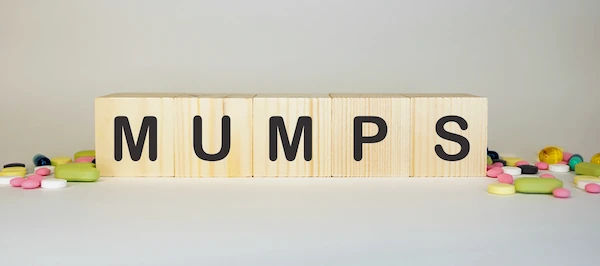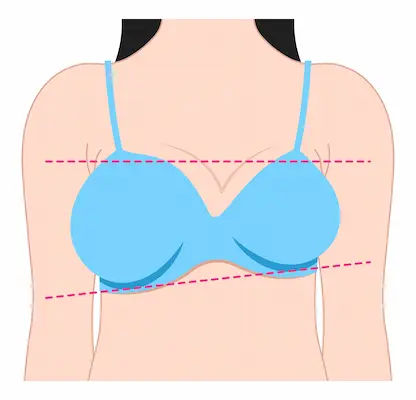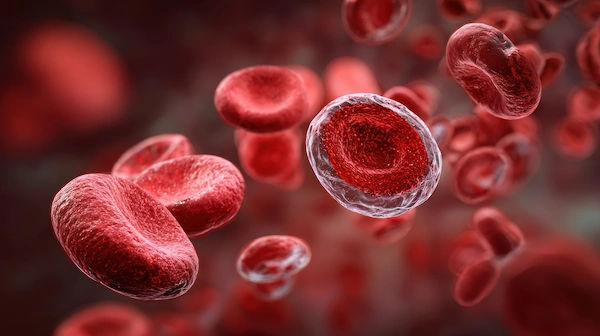Neurogenic Bladder: Causes, Symptoms, and Management
Discover the causes, symptoms, diagnosis, and treatment options for neurogenic bladder. Learn effective management strategies to protect kidney health and improve quality of life.

Written by Dr. M L Ezhilarasan
Reviewed by Dr. Rohinipriyanka Pondugula MBBS
Last updated on 13th Jan, 2026

Introduction
Have you ever thought about the intricate communication between your brain and your bladder? It’s a complex system of nerves that tells you when it’s time to go and allows you to hold it until you find a restroom. But what happens when this communication line is disrupted? This is the reality for individuals living with a neurogenic bladder, a condition where nerve damage impairs bladder control. It can lead to frustrating and sometimes dangerous problems, from frequent, urgent urination to the inability to empty the bladder completely. This comprehensive guide will help you understand the causes, recognise the symptoms, and explore the most effective treatment options and management strategies for neurogenic bladder. Whether you're seeking information for yourself or a loved one, knowledge is the first step towards regaining control and improving quality of life.
What is a Neurogenic Bladder?
A neurogenic bladder isn't a disease itself but a term for bladder dysfunction caused by damage to the nervous system. Think of your bladder as a muscular sac controlled by a sophisticated network of nerves. These nerves carry messages between your brain, spinal cord, and bladder muscles and sphincters. They coordinate two main functions: storing urine and emptying it (voiding) at an appropriate time. When this nerve communication is interrupted due to injury or illness, the bladder can become overactive (spastic), underactive (flaccid), or a combination of both, leading to a range of challenging symptoms.
The Brain-Bladder Connection: How It's Supposed to Work
Normally, as your bladder fills with urine, stretch receptors in the bladder wall send signals up the spinal cord to the brain, signalling the need to urinate. The brain then assesses the situation—if it’s not a convenient time, it sends signals back down to tell the bladder’s detrusor muscle to relax and the sphincter muscles to stay tight. When you decide it's time to void, the brain sends a signal for the detrusor muscle to contract and the sphincters to relax, allowing urine to flow out effortlessly. This seamless brain-bladder connection is a voluntary process we often take for granted.
When the Nerves Are Damaged: What Goes Wrong?
Nerve damage severs or scrambles these crucial messages. The location and type of damage determine the resulting bladder dysfunction. For example, damage to the brain (from a stroke) might remove the "inhibitory" signals, causing overactivity. Damage to the spinal cord can create miscommunication, where the bladder and sphincter muscles contract at the same time (dyssynergia), trapping urine. Damage to the peripheral nerves (from diabetes) can simply mean the "full bladder" signal never reaches the brain, leading to painless overfilling and retention.
Common Causes of Neurogenic Bladder Dysfunction
The conditions that can lead to a neurogenic bladder are varied, but they all share a common feature: an impact on the nervous system.
Spinal Cord Injuries and Disorders
This is one of the most common causes. Traumatic injuries from accidents, as well as non-traumatic disorders like spina bifida, spinal stenosis, or transverse myelitis, directly affect the spinal cord pathways that control bladder function.
Consult a Urologist for Personalised Advice
Brain Diseases and Injuries
Conditions that affect the brain can impair its ability to process and send signals to the bladder. This includes:
Stroke
Parkinson's disease
Brain tumours
Dementia (e.g., Alzheimer's disease)
Traumatic Brain Injury (TBI)
Hydrocephalus
Nerve Diseases (Neuropathies)
Diseases that damage peripheral nerves throughout the body can also affect bladder nerves.
Diabetes Mellitus: Diabetic neuropathy is a leading cause, often resulting in an underactive bladder.
Multiple Sclerosis (MS): The demyelinating lesions of MS can disrupt nerve signals anywhere, including those to the bladder.
Shingles (Herpes Zoster): If it affects the sacral nerves, it can cause bladder issues.
Guillain-Barré Syndrome
Infections and Other Causes
Severe pelvic surgery (e.g., radical prostatectomy or hysterectomy) can sometimes damage local nerves. Additionally, central nervous system infections or heavy metal poisoning are rare but possible causes.
Recognising the Symptoms: Overactive vs. Underactive Bladder
Symptoms vary widely and depend on whether the bladder is overactive, underactive, or a mix.
Symptoms of an Overactive Bladder (Spastic)
This occurs when nerves cause the bladder muscles to contract involuntarily.
Urinary Incontinence: The involuntary leakage of urine.
Urinary Frequency: Needing to urinate more than 8 times in 24 hours.
Urinary Urgency: A sudden, intense urge to urinate that is difficult to defer.
Nocturia: Waking up two or more times at night to urinate.
Symptoms of an Underactive Bladder (Flaccid)
This occurs when the bladder muscle is underactive and cannot contract properly to empty.
Urinary Retention: The inability to empty the bladder completely.
Straining: Needing to push or strain to initiate urination.
Weak or Intermittent Stream: A urine flow that stops and starts.
Overflow Incontinence: Leakage of urine because the bladder is too full.
Feeling of Incomplete Emptying
How is Neurogenic Bladder Diagnosed?
Accurate diagnosis is crucial for effective neurogenic bladder management. If you are experiencing any of these symptoms, a urologist will typically follow a structured process.
Medical History and Physical Exam
Your doctor will ask detailed questions about your symptoms, medical history, and any neurological conditions. A physical exam, including a neurological assessment and possibly a pelvic exam, will check for sensory deficits and other clues.
Key Diagnostic Tests
Urodynamic Testing: This is the gold standard. It measures bladder pressure, volume, and flow rate to see how well your bladder stores and releases urine. A key test here is the urodynamic study test for neurogenic bladder.
Cystoscopy: A thin tube with a camera is inserted into the urethra to view the inside of the bladder and urethra, ruling out other causes like stones or tumours.
Ultrasound: A post-void residual (PVR) ultrasound measures how much urine is left in your bladder after you try to empty it. A high PVR indicates retention.
Urine Tests: To check for infection or blood.
MRI or CT Scan: To look for abnormalities in the brain, spinal cord, or pelvic structures.
If your diagnostic tests suggest a complex issue, your urologist might recommend a multidisciplinary approach. Consulting a neurologist online with Apollo24|7 can help provide a comprehensive view of the underlying neurological condition.
Treatment Options for Neurogenic Bladder
The goal of treatment is to protect kidney function, prevent infections, and maintain continence, thereby improving quality of life. The best treatment for neurogenic bladder is highly individualised.
Lifestyle and Behavioural Strategies
These are often the first line of defence.
Timed Voiding and Bladder Training
Emptying the bladder on a fixed schedule (e.g., every 2-4 hours) regardless of urge, to retrain the bladder and prevent accidents.
Dietary Modifications
Avoiding bladder irritants like caffeine, alcohol, artificial sweeteners, and spicy foods can significantly reduce overactivity symptoms.
Medications for Bladder Control
Anticholinergics (e.g., oxybutynin, tolterodine): Relax the bladder muscle to reduce overactivity and urgency.
Beta-3 Agonists (e.g., mirabegron): Relax the bladder muscle and increase capacity through a different mechanism.
Alpha-Blockers (e.g., tamsulosin): Relax the bladder neck and prostate muscle in men to improve urine flow and help with emptying.
Catheterisation: Intermittent vs. Indwelling
Intermittent Catheterisation (IC): The preferred method for emptying the bladder. A clean catheter is inserted through the urethra several times a day to drain urine, then removed. This mimics natural emptying and is low-risk for infection.
Indwelling Catheter: A catheter that remains in place continuously, either through the urethra (Foley catheter) or through a small hole in the abdomen (suprapubic catheter). Used when IC is not possible.
Surgical Procedures and Advanced Interventions
Botox Injections: Botox is injected into the bladder muscle to paralyse it, effectively treating overactivity for several months at a time.
Sacral Nerve Stimulation: A device similar to a pacemaker is implanted to send mild electrical pulses to the nerves controlling the bladder.
Bladder Augmentation: A surgery to make the bladder larger using a piece of intestine, allowing it to hold more urine at a lower pressure.
Urinary Diversion Surgery: Creating a stoma (opening) on the abdomen to drain urine into an external pouch, bypassing the bladder entirely.
Potential Complications and How to Prevent Them
Unmanaged neurogenic bladder can lead to serious health issues.
Kidney Damage from High Pressure
The most dangerous complication. Chronic urinary retention or high-pressure voiding can cause urine to back up into the kidneys (vesicoureteral reflux), leading to hydronephrosis (kidney swelling) and eventual kidney failure. Regular urological follow-up is essential to monitor kidney health.
Urinary Tract Infections (UTIs)
Incomplete emptying provides a pool of stagnant urine where bacteria can grow. Using catheters also introduces a risk of infection. Symptoms include cloudy, foul-smelling urine, fever, and discomfort. Preventing UTIs with neurogenic bladder involves strict hygiene with catheter use, adequate fluid intake, and sometimes prophylactic antibiotics.
Living with a Neurogenic Bladder: Tips for Daily Life
A diagnosis can feel overwhelming, but many people live full, active lives with proper management.
Plan Ahead: Know where restrooms are located when you go out. Carry a catheterisation kit and spare supplies.
Stay Hydrated: It may seem counterintuitive, but limiting fluids can concentrate urine and irritate the bladder. Drink water steadily throughout the day.
Skin Care: Protect your skin from moisture if you experience incontinence to prevent breakdown and infection.
Seek Support: Connect with support groups or a therapist. Managing a chronic condition is emotionally challenging.
Conclusion
Understanding neurogenic bladder is the foundation for effective management and reclaiming your quality of life. While the condition stems from complex nerve damage, its management is often straightforward with a personalised plan tailored to your specific type of dysfunction. From behavioural techniques and medications to advanced procedures like Botox or nerve stimulation, a wide range of treatment options exists. The most critical step is to seek expert guidance. A urologist can provide an accurate diagnosis and craft a management strategy that protects your long-term kidney health, prevents infections, and helps you stay dry and comfortable. If you are experiencing symptoms of bladder dysfunction, consult a urologist online with Apollo24|7 for a comprehensive evaluation and to discuss a personalised path forward. Remember, you are not alone, and with proper care, this condition can be successfully managed.
Consult a Urologist for Personalised Advice
Consult a Urologist for Personalised Advice

Dr Ved Bhaskar
Urologist
11 Years • MBBS, MS (Gen Surgery), MCh (Urology), Fellowship in Robotic Surgery
Lucknow
Apollomedics Super Speciality Hospital, Lucknow

Dr. Dhruv B. Patel
Urologist
12 Years • MBBS, MS, DrNB (Urology - IKDRC, Ahmedabad)
Ahmedabad
Apollo Hospitals Gandhinagar, Ahmedabad
(25+ Patients)

Dr Anupam Sharma
Urologist
18 Years • MBBS, MS(Gen Surgery), DNB (Urology)
Delhi
Apollo Hospitals Indraprastha, Delhi
(25+ Patients)

Dr Shailendra Kumar Gupta
Urologist
10 Years • MBBS, MS (KGMU), DNB (Urology - MPUH, Nadiad)
Lucknow
Apollomedics Super Speciality Hospital, Lucknow

Dr Ram Prasad Ch
Urologist
6 Years • MBBS MS(Gen Surgery) DrNB(Urology)
Hyderabad
Apollo Hospitals Jubilee Hills, Hyderabad
More articles from General Medical Consultation
Frequently Asked Questions
Can neurogenic bladder be cured?
While the underlying nerve damage often cannot be reversed, the symptoms of neurogenic bladder can be very effectively managed. The goal of treatment is to control symptoms, prevent complications, and allow you to live a normal life.
Is neurogenic bladder a permanent condition?
In most cases, yes, as it is caused by permanent neurological conditions. However, for some causes like a temporary infection or inflammation, bladder function may return to normal once the underlying issue is resolved.
What is the best way to prevent UTIs with a neurogenic bladder?
The best strategies include practising clean technique (especially with catheterisation), staying well-hydrated to flush out bacteria, and completely emptying the bladder regularly (via voiding).




